Project
Future scenarios to support the sustainable use of marine areas ( CoastalFutures - Phase I )
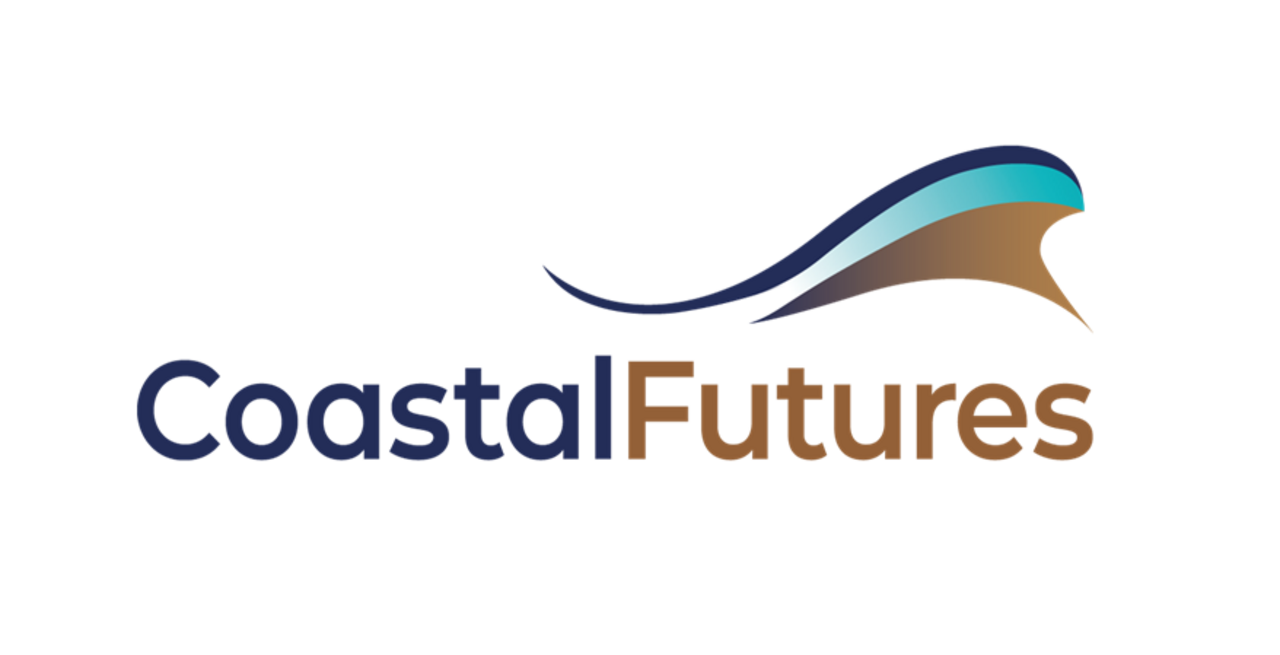
Future Scenarious for Sustainable Marine Ecosystems of Contested Marine Areas
In "CoastalFutures", we elaborate science-based concepts for sustainable management of coasts, marine ecosystems and their resources. We develop an innovative model system to test future use scenarios and support analyses of possible management options.
Background and Objective
Climate change and increasing human use of the oceans are creating new challenges for the traditional management of marine resources. Consequently, there is an urgent call for a more comprehensive ecosystem-based marine management. The project "CoastalFutures - Future Scenarios to Promote Sustainable Use of Marine Spaces", which is a part of the research mission "Protecting and Sustainably Using the Seas" of the German Alliance for Marine Research (DAM), pursues the development of an innovative tool to support integrated marine management for the North and Baltic Seas. This tool encompasses three important components:
1) future scenarios for the multiple use of coastal areas
2) a novel model system in which future impacts of climate change and human use can be studied at the ecosystem level and sustainable protection concepts can be tested
3) Assessment methods for the modeled scenarios and elaboration of options for action for the policy advice.
"CoastalFutures" addresses four main maritime sectors: (i) offshore energy production, (ii) fisheries, (iii) coastal protection and sediment management, and (iv) nutrient and pollutant inputs. The Thünen Institute with its Institutes of Sea Fisheries and Baltic Sea Fisheries focuses on the development of the model components, future scenarios and practical knowledge to assess the impact of ecosystem changes on fisheries and vice versa. Our science-based recommendation helps to ensure the sustainable use of living marine resources through modern fisheries management.
Approach
We are generating future scenarios for the use of coastal ecosystems together with sector representatives from wind energy, nature conservation and fisheries, among others, as well as project partners in order to be able to make statements about future development opportunities for fisheries. These scenarios vary in terms of the extent of change (e.g., greater or lesser temperature increases), availability of land (including extent of designation of land for offshore wind farms), or structural adjustments in the fisheries sector (e.g., opportunities for investment in alternative fishing methods.
We test the negotiated future scenarios using the coastal model system, which links the submodels of the project partners in a virtual environment and can thus simulate numerous direct and indirect impacts on various components of marine ecosystems. The Thünen-Institute conducts specific analyses of the spatial distribution of commercial fish species, considering current and future climate, as well as human use of marine space. In addition, we use new data and data from laboratory experiments of previous projects to further develop existing recruitment models to estimate the recruitment success of commercial fish species in the North Sea, taking the previously mentioned pressures into account. Both models developed by our team will finally be coupled and integrated into the cross-scale coastal model system. In addition, a fishery and food web model will be integrated to investigate the relationships between climate-induced changes in species composition, exploitation intensity and the resulting impacts on the ecosystems in the North Sea and Baltic Sea.
The results of the model will then be used to investigate the impact of different climate and exploitation scenarios on the future development of the German fishing fleets. The scenarios will first be evaluated using socio-economic methods, e.g. agri benchmark fish methodology. Subsequently, the results will enable us to develop adaptation strategies for the fishing fleets. Those strategies will be finally presented and thoroughly discussed with associated stakeholders.
Results
Mapping Historical and Future Suitability of the North and Baltic Seas for Commercial Fish Species - interactive maps at Thünen Sea Atlas
Welcome to our Online library of Physiological Models of Larval Fish
Publications
- 0
Schrum C, Akimova A, Becherer J, Bellou N, Boersma M, Burchard H, Daewel U, Döring R, Dreier N, Fiorentino D, Fröhle P, Garthe S, Gilles A, Goseberg N, Gröger M, Hagemann S, Hitzegard J, Kannen A, Lojek O, Meier M, et al (2025) CoastalFutures - Scenarios to promote sustainable futures of contested marine areas : Teil I: Kurzbericht zum Verbundvorhaben CoastalFutures der DAM sustainMare-Mission & Teil II: Eingehende Darstellung zum Verbundvorhaben CoastalFutures der DAM sustainMare-Mission ; Schlussbericht. Hannover: TIB, 60 p, DOI:10.34657/19263
- 1
Sidorenko V, Rubinetti S, Akimova A, Pogoda B, Androsov A, Beng KC, Sell AF, Pineda-Metz SEA, Wegner KM, Brand SC, Shama LNS, Wollschläger J, Klemm K, Rahdarian A, Winter C, Badewien TH, Kuznetsov I, Herrling G, Laakmann S, Wiltshire KH (2025) Connectivity and larval drift across marine protected areas in the German Bight, North Sea : necessity of stepping stones. J Sea Res 204:102563, DOI:10.1016/j.seares.2025.102563
- 2
Nakisa T, Núñez-Riboni I, Daewel U, Fiksen O, Peck M, Huebert KB, Schrum C, Akimova A (2025) Free-access online library of physiological individual-based models of marine fish larvae. STAGES : Early Life History Section Newsl 46(2):12-14
- 3
Fiorentino D, Núñez-Riboni I, Pierce ME, Oesterwind D, Akimova A (2025) Improving species distribution models for climate change studies: Ecological plausibility and performance metrics. Ecol Model 508:111207, DOI:10.1016/j.ecolmodel.2025.111207
- 4
Beng KC, Akimova A, Laakmann S, Sidorenko V, Rubinetti S, Pineda-Metz SEA, Pogoda B, Brand SC, Klemm K, Wegner M, Shama LNS, Schmittmann L, Gimenez L, Alter K, Stechele B, Rahdarian A, Winter C, Androsov A, Sokolova IM, Sell AF (2025) Integrating molecular methods and biophysical modeling to assess functional connectivity between marine protected areas. Ecol Appl 35(8):e70150, DOI:10.1002/eap.70150
- 5
Haase S, Dorrien C von, Kaljuste O, Plantener N, Sepp E, Stelzenmüller V, Velasco A, Oesterwind D (2025) The rapid expansion of offshore wind farms challenges the reliability of ICES-coordinated fish surveys - insights from the Baltic Sea. ICES J Mar Sci 82(3):fsad124, DOI:10.1093/icesjms/fsad124
- 6
Akimova A, Döring R, Núñez-Riboni I, Lasner T, Oesterwind D, Pierce ME (2025) Verbundprojekt DAM-SN - CoastalFutures Phase I "Zukunftsszenarien zur Förderung einer nachhaltigen Nutzung mariner Räume"; Teilprojekt F: "Zukunftsszenarien für Meeresökosysteme und nachhaltige Fischerei". Hannover: TIB, DOI:10.34657/20051
- 7
Askov Mousing E, Daewel U, van Leeuwen S, Akimova A, Almroth-Rosell E, Belgrano A, Benkort D, Bentley J, Bossier S, Chifflet M, Christiansen N, David C-L, Dye B, Friedland R, Gallego A, Gao S, García-García L, Hansen C, Hill-Cruz M, Püts M, et al (2025) Working Group on Integrative, Physical-biological and Ecosystem Modelling (WGIPEM; outputs from 2024 meeting). Copenhagen: ICES, 81 p, ICES Sci Rep 7(28), DOI:10.17895/ices.pub.28016480
- 8
Moyano M, Illing B, Akimova A, Alter K, Bartolino V, Börner G, Clemmesen C, Finke A, Gröhsler T, Kotterba P, Livdane L, Mittermayer F, Moll D, Nordheim L von, Peck M, Schaber M, Polte P (2023) Caught in the middle: bottom-up and top-down processes impacting recruitment in a small pelagic fish. Rev Fish Biol Fisheries 33(1):55-84, DOI:10.1007/s11160-022-09739-2
- 9
Akimova A, Peck M, Börner G, Damme CJG van, Moyano M (2023) Combining modeling with novel field observations yields new insights into wintertime food limitation of larval fish. Limnol Oceanogr 68(8):1865-1879, DOI:10.1002/lno.12391
- 10
Lasner T, Barz F (2023) Küstenfischerei 2045: Erste Zielbilder der Thünen-Zukunftswerkstatt. Z Fischerei 3:4, DOI:10.35006/FISCHZEIT.2023.22
- 11
Döring R (2023) Relative Stabilität in Zeiten des Wandels - Warum es lohnt, über die Fangquotenverteilung in Europa nachzudenken! Z Fischerei 3(Artikel 2):1-11, DOI:10.35006/fischzeit.2023.26
- 12
Akimova A, Peck M, Börner G, Damme CJG van, Moyano M (2023) Wintertime growth limitation of herring larvae: combining physiological modelling with novel zooplankton observations. STAGES : Early Life History Section Newsl 44(3):8-9
Thünen-Contact
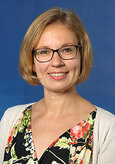
Involved Thünen-Partners
- Albrecht, FelixSF Institute of Sea Fisheries
- Döring, RalfSF Institute of Sea Fisheries
- Fiorentino, DarioSF Institute of Sea Fisheries
- Lasner, TobiasSF Institute of Sea Fisheries
- Nakisa, TaherehSF Institute of Sea Fisheries
- Nunez-Riboni, IsmaelSF Institute of Sea Fisheries
- Oesterwind, DanielOF Institute of Baltic Sea Fisheries
- Pierce, MariaOF Institute of Baltic Sea Fisheries
Involved external Thünen-Partners
-
Stiftung Tierärztliche Hochschule Hannover
(Hannover, Deutschland) -
Helmholtz-Zentrum Hereon (alt: Helmholtz-Zentrum Geesthacht)
(Geesthacht, Deutschland) -
Leibniz Universität Hannover
(Hannover, Deutschland) - Leibniz-Institut für Ostseeforschung Warnemünde (IOW)
(Warnemünde, Deutschland) -
Technische Universität Braunschweig
(Braunschweig, Deutschland) -
Universität Hamburg
(Hamburg, Deutschland) -
Technische Universität Hamburg (TUHH)
(Hamburg, Deutschland)
Funding Body
-
Federal Ministry of Research, Technology and Space (BMFTR)
(national, öffentlich)
Duration
12.2021 - 11.2024
More Information
Project funding number: Förderkennzeichen: 03F0911F
Project status:
finished
Project Highlights
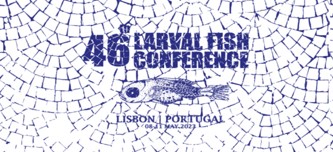
Thünen young researchers presented their results at two international conferences. Tahereh Nakisa gave a talk about an online model library of larval fish at the 46th Larval Fish Conference that took place in Lisbon. Tahereh developed this library as a part of her PhD thesis. The library includes freely-available model code and data on larval stages of various fish species. Dr. Dario Fiorentino presented his findings about fish habitat modelling at the 5th International Symposium on “Effects of Climate Change on the World’s Ocean” in Bergen. This symposium brought together experts from around the world to better understand climate effects on ocean ecosystem and to elaborate possible adaptation and mitigation measures to ensure a sustainable future of our oceans. Abstract of both presentations are shown below.
“Online Model Library of larval fish: a tool to better understand larval survival in marine ecosystems”. T. Nakisa, A. Akimova, U. Daewel, I. Nunez-Riboni, C. Schrum
The stability and resilience of fish populations in the face of exploitation depends strongly on the annual recruitment of young-of-the-year. Understanding this phenomenon is crucial for the sustainable management of fish stocks. To achieve this understanding, previous studies have used individual-based models (IBMs), which simulate the behavior and interactions of individual fish and their environment. However, these models are often dispersed across various publications and are not easily accessible to the wider scientific community. To address this issue, we developed an online library of fish early life stages (ELSs), which brings together IBMs from various fish species, including Atlantic cod (Gadus morhua), Atlantic herring (Clupea harengus), European and sprat (Sprattus sprattus), among others. Our library provides comprehensive access to these models, including their summaries, codes, and quality control measures to to ensure their accuracy. Our Online Library of Fish ELSs not only features models but also includes current various data for model calibration and validation. One of goals is to develop a generic approach for larval fish IBMs suitable for various species. To achieve this, we review and compare the foraging behavior of different species to identify similarities and differences. Overall, our Online Library of Fish ELSs aims to provide a one-stop resource for researchers interested in larval IBMs as a powerful tool to investigate drivers of fish recruitment. By consolidating these models and data in one place, we hope to facilitate future research in this critical field and contribute to the sustainable management of fish populations.
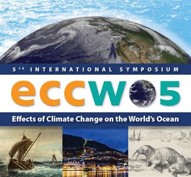
“Improving selection of fish habitat models for climate studies”. D. Fiorentino, I. Núñez-Riboni, D. Oesterwind, M. E. Pierce, A. Akimova
Climate-induced shifts in fish distribution have been documented to trigger changes in marine ecosystems and their services. Species distribution modelling is widely used to study past and predict future species distribution as required by climate smart marine spatial planning to promote sustainable use of marine ecosystems. Traditional species distribution models rely on cross-validation (CV) techniques to evaluate model performance but rarely consider 1) model transferability, i.e. the ability to extrapolate to future conditions or area with no observations, and 2) the ability of CV to effectively choose ecological meaningful models.
To address these issues, we tested different types of abundance-environment relationships in a framework of generalized modeling applied to 12 commercial fish species. We designed three CV routines: 1) random-split CV, i.e. the traditional approach 2) space-blocking -CV, to control for sampling design and 3) niche-blocking CV, model fitting with optimal environmental conditions. Finally, we validated partial effects of temperature between models.
Our results reveal that the most widely used CV routine (random-split CV) often selects a species distribution model that lacks transferability (less suitable for extrapolation) as the best model. Therefore, to prevent erroneous predictions, we recommend to additionally verify the functional form of temperature partial effect to ensure model adherence with the principle of ecological significance and parsimony principles. We show that this step is critical for generating accurate projections of species distribution patterns in the face of future climate change scenarios.
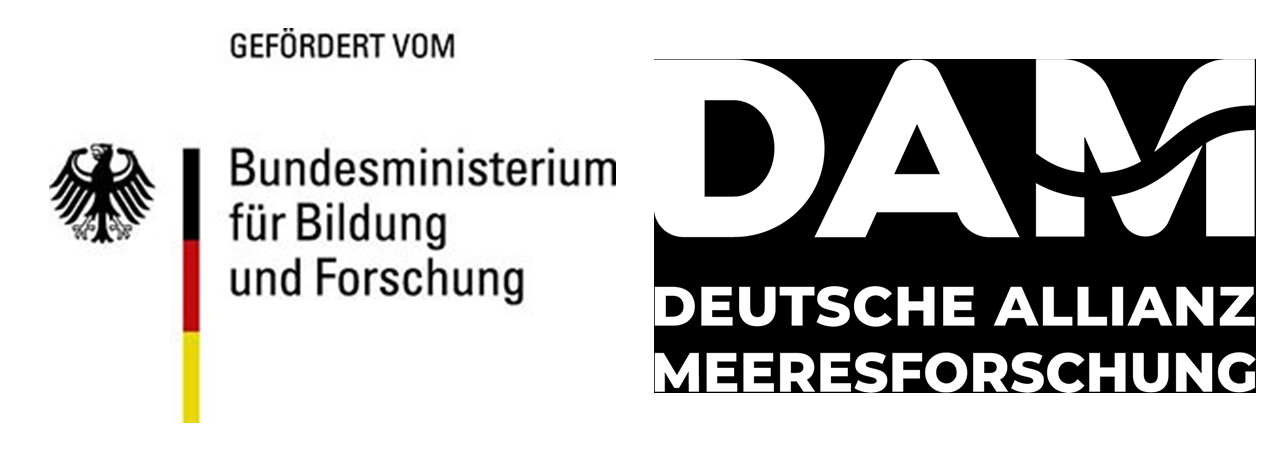

![[Translate to English:] [Translate to English:]](/media/_processed_/7/1/csm_IMG_7977_large_1defaf5de1.jpg)






